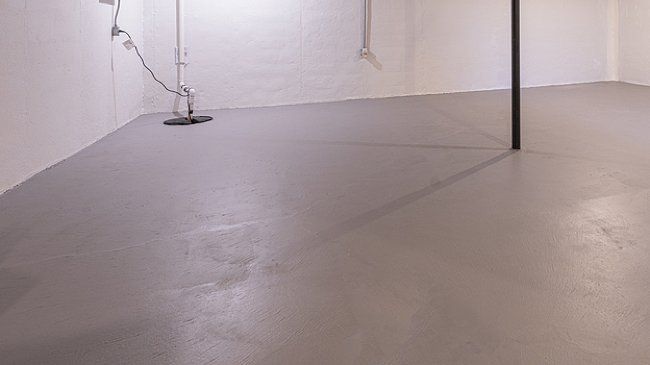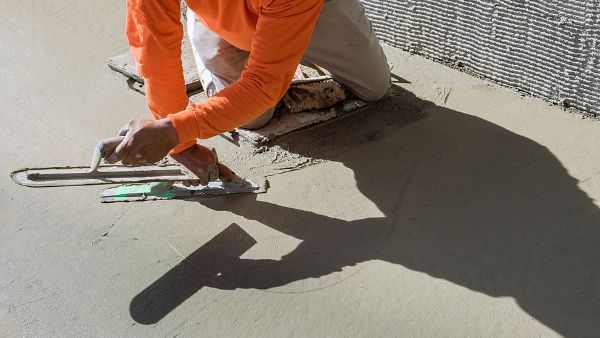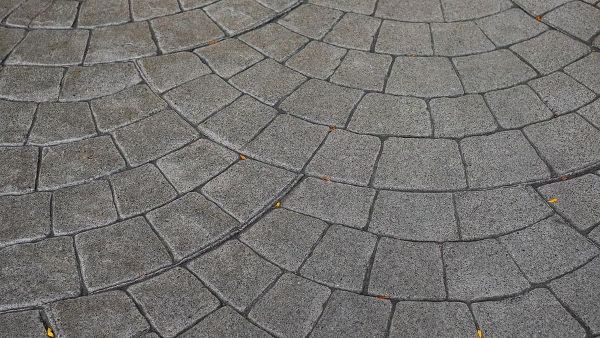
Is It Good To Seal Commercial Concrete?
Where Do Concrete Cracks Come From?
Concrete on a commercial property is going to see a lot of wear and endure continuous exposure to the elements. To safeguard concrete against damage, a concrete contractor will typically recommend using a sealant. Here are some of the most important advantages of sealing concrete.
A Concrete Contractor Can Fortify an Installation With Sealant
Concrete’s porous texture can cause it to expand and contract as ambient temperatures rise and fall. When it is expanding, it forms small fracture lines that may develop into deep rifts. When it is contracting, suddenly becoming more brittle can make it less resistant to impact or general wear and tear. Even though the material is denser when it contracts, it will also become more uneven so it will not provide the same quality of support.
When a concrete contractor applies a topical sealant, it mitigates the effect that changing temperatures has on the consistency of concrete. By restricting contact with ambient air temperatures, sealing concrete helps it maintain its structural integrity.
Just as changes in temperature can affect concrete, so can changes in humidity. Sealant fortifies surfaces against changes in the air’s saturation.
Shielding Concrete Against Sun Damage Adds Longevity
Sustained exposure to UV rays can make it hard for concrete to maintain its form. Since heating up concrete causes it to expand, sunlight can be a big catalyst for this phenomenon. On hot and sunny days, the temperature of the ground can actually be much hotter than the air because the ground absorbs heat. Consequently, a concrete contractor must be particularly attentive to the sealant process on applications that are going to have the sun beating down on them continuously.
In addition to compromising an installation’s firmness, sun exposure triggers fading. Fades may look like stains, or the entirety of an installation can look lighter and duller over time. Coating concrete with sealant works like sunblock and deflects UV rays.
Preventing Water Damage Preserves Concrete
Concrete is strong and heavy, and these qualities make it a great choice for foundations, parking lots, and other surfaces that have to support considerable weight. However, concrete is not indestructible, and its porous consistency makes it susceptible to damage.
Water damage is one of concrete’s biggest vulnerabilities. If a concrete contractor does not finish an application with a sealant, the concrete will not repel water. Instead, it will absorb water. Instead of simply forming puddles and evaporating, water will permeate through thick concrete.
After just a moderate amount of permeation, a paved area will become less dense and softer. Softening concrete could generate small cracks, or you may see large chunks of material crumbling away. In parking lots or driveways, the loosening of material will lead to divots and depressions that could be dangerous.
A sealant serves as a protective barrier between a concrete surface and rain, floodwaters, or excessive humidity. Rather than seeping into an installation, water stays on the surface so long as the sealant remains intact.
Fortifying concrete against water damage is essential for structural elements such as a building’s foundations or steps. Without this added layer of protection, a property could be extremely susceptible to water intrusion and costly repair work.
Sealant Can Enhance a Property’s Aesthetics Appeal
Staining and fading can make a fairly new installation look decades old. Removing stains can be tough, and there is not much that you can do about fading that does not involve refinishing a surface. A concrete contractor can proactively prevent blemishes with a concrete sealant and help preserve a property’s aesthetics.
Keeping Commercial Property in Safe Condition is Crucial
Commercial property owners need to be vigilant about safety and accident prevention. Concrete that is crumbling or has a bunch of cracks and crevices could be fraught with trip hazards. Using a sealant to stave off wear and damage can reduce property owners’ liability risk for accidents involving property maintenance oversights.
Sealing Concrete Can Save Money
Reinforcing an installation with sealant makes concrete last longer. By making concrete more durable, it reduces the likelihood that you will have to refinish an area or address repair needs. Likewise, an effective sealant will deter stains, so you may not have to allocate the same level of resources to regular maintenance.
Getting Help From a Concrete Contractor Can Protect Your Commercial Property
There are numerous environmental factors that affect concrete’s durability and longevity, so it is a good idea to work with a concrete contractor that has experience serving commercial customers in your area. A locally based concrete services company will have a working understanding of how regional weather conditions can bear on the right choice of materials.
Reinforcing concrete with a protective shield is an important part of completing a project, so commercial property owners should seek out an experienced contractor that specializes in concrete installations and applications. To learn more about planning a concrete project or caring for concrete, contact RTS Construction. Our team has extensive experience helping business owners with professional concrete installation and repair.
Sources:
https://concretesupplyco.com/true-benefits-sealing-concrete/
https://gambrick.com/does-concrete-need-to-be-sealed/
https://www.concretesealerstore.com/latest/the-benefits-of-concrete-sealers.html
https://www.concretesealerreview.com/why-seal-concrete-driveways/
Share Your Comments
Articles You May Also Like
Get Started On Your Concrete Project Today!
From concrete foundations to backyard patios, we do it all!
RTS Construction proudly serves: Sonoma County • Marin County • Sonoma • Santa Rosa • Rohnert Park • Petaluma • Windsor • Napa • Sebastopol and surrounding areas.




